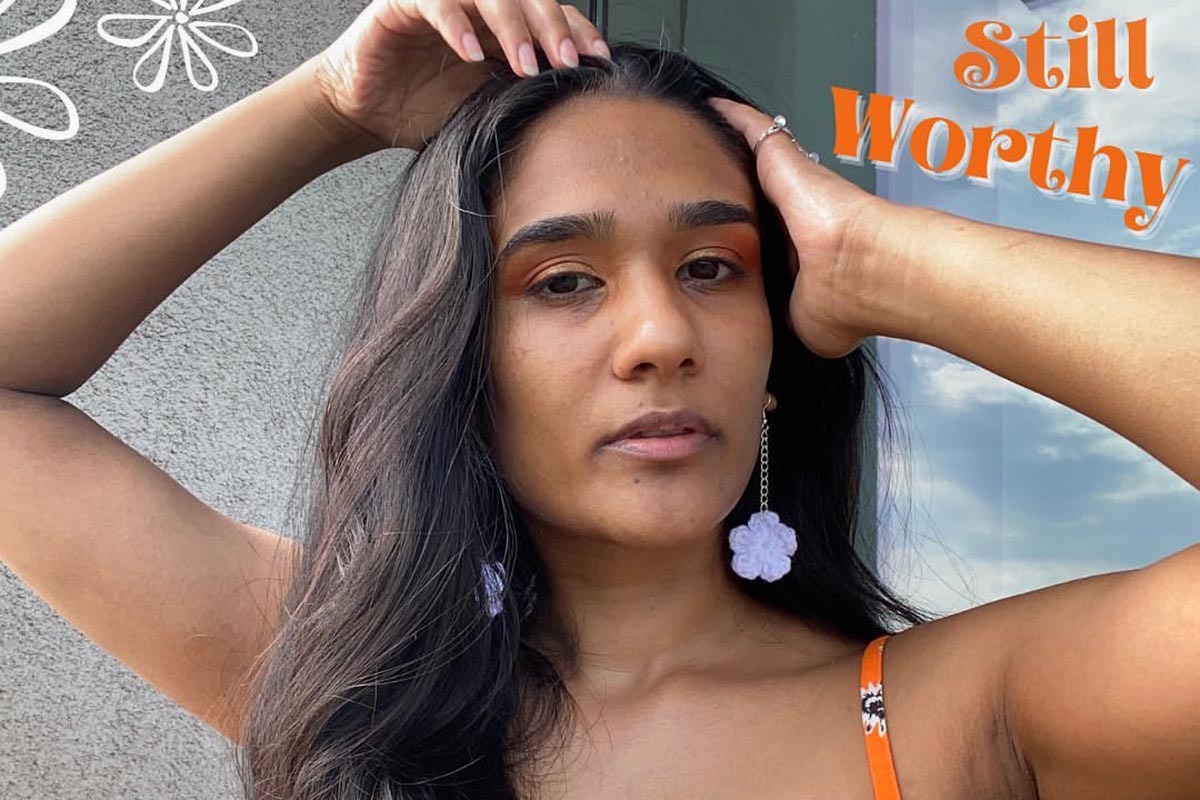
‘Unfiltered Brown Girl’ – This Is How I Love My Broken Skin
28-year-old influencer Virali grew up with challenging skin, in a difficult South Asian family. Now, she advocates for all South Asian women to drop the Snapchat filter and appreciate their natural selves, dark circles, and all!
British Gujarati body neutrality advocate, Virali suffered from severe acne in a South Asian community that failed to support her.
She found her own way of being proud of her ‘broken’ skin and uses her platform to encourage all young women to feel safe and proud of their natural beauty.
Virali speaks to Asiana on her journey to self-love and tips on how to get rid of the filter, once and for all!
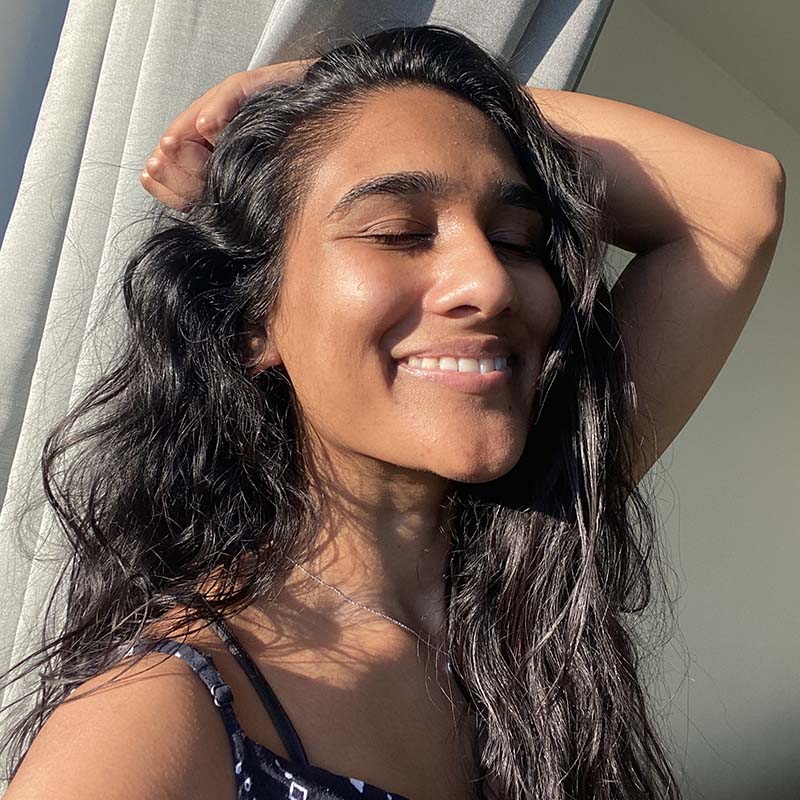
‘#unfilteredbrowngirls’
I started my page during the first lockdown focusing on my relationship with my skin. Like many others, I found myself spiralling into negative thoughts about my appearance whilst scrolling through seemingly “perfect” images and videos on social media.
The insecurities I was already dealing with were at an all-time high, and with being locked down with my thoughts, this was a recipe for disaster.
One day I woke up and decided I didn’t want to feel this way. I unfollowed toxic accounts and started researching into self-love and more importantly acceptance. Through journaling, I was able to identify where my insecurities had stemmed from, how I could unlearn all that I had been taught about beauty, and channel my new mindset to help others by creating and posting meaningful content.
I created the hashtag #unfilteredbrowngirls to get more South Asian women to drop the Snapchat filter and appreciate their natural selves, dark circles and all!
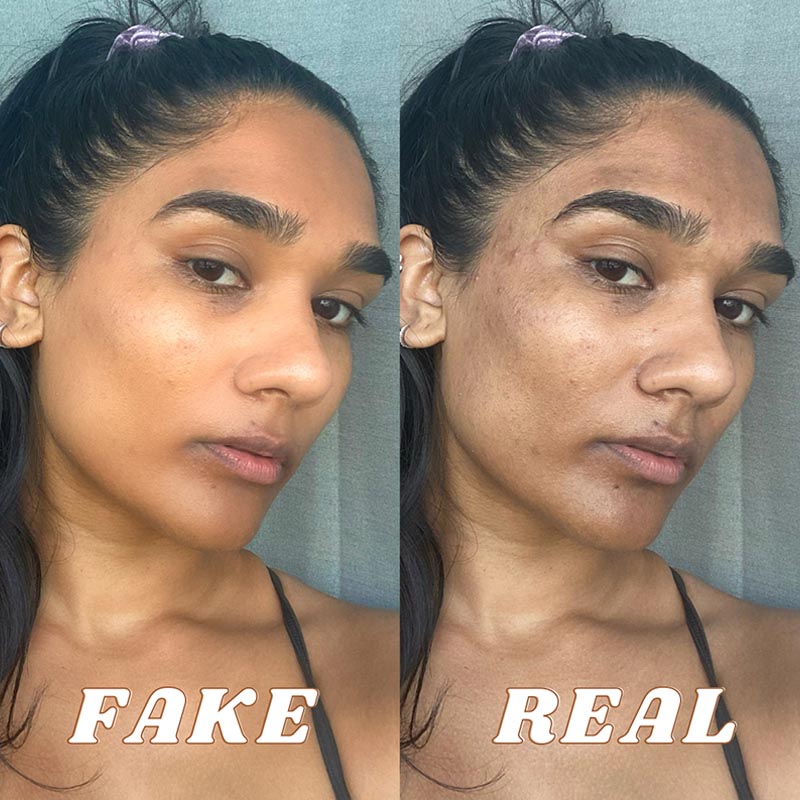
‘Broken Skin’
Growing up in a South Asian household, appearance often defined my worth. As with others who share my background, I’ve been no stranger to a negative comment. I often wished I had a “shoulder to cry on” or some words of encouragement from someone who looked like me.
From the age of 13, I suffered with severe acne, and this was immediately pointed out by everyone around me.
“What happened to your skin?” was always the question of the day. I was told my skin needed to be “fixed” and was then bombarded with home remedies from turmeric face masks, cinnamon, and honey to lemon juice – all of which were of no help. I had tried every topical treatment and antibiotic available to achieve “clear skin”, yet nothing seemed to work.
From not wanting to get up in the morning, leave the house or be seen in white light, hiding my face with my sleeve, and covering my acne and scarring with makeup – acne was officially restricting me from a full childhood. The negative relationship with my skin became a negative relationship with my entire appearance, and it felt like something I couldn’t get away from.
Dermatillomania (skin picking disorder) meant my skin wouldn’t heal quickly and scarring led to my overall skin tone to darken. As a South Asian, hyperpigmentation was tricky to deal with and this increased the frequency of classic Asian auntie comments “you’ve gone so dark, who will marry you?”, “you need to use fair and lovely!”, “why don’t you look more like her?”
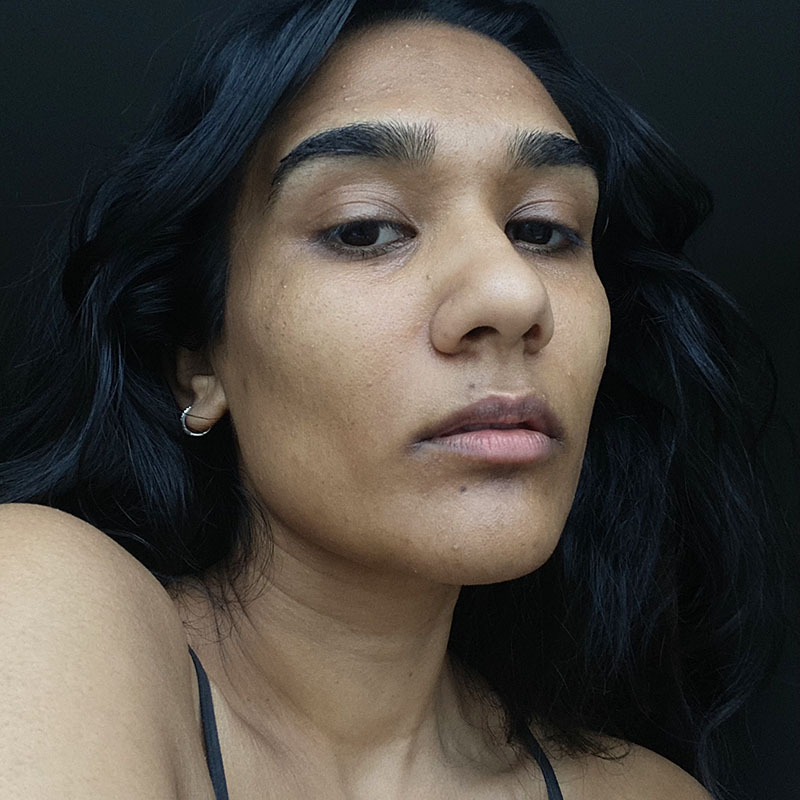
‘Imperfect’
Hearing these things as a teen led me to compare the way I looked to others around me, and it wasn’t the first time. I had already been struggling with my facial and body hair, having been bullied for being the hairiest person in the class at the tender age of 8.
My bushy eyebrows, big nose, pointy chin and small lips. It felt like nothing about me was normal, and everything needed changing. I would wish certain parts of me away, the things that make me, me. This mindset followed me through to adulthood and the insecurities played a major part in all the decisions I had made in my friendships and relationships growing up.
Today, I look at myself through a more realistic lens. Instead of using self-deprecating language about skin, I appreciate that things just are the way they are. I accept that my skin will fluctuate, and my acne may return. Through self-love, I’m able to look at all my negative experiences in a more positive light. Some things in life are uncontrollable, but what I can control is how I let it make me feel. Knowing that I can positively change how I view myself makes me feel strong and happy.
I now strive for healthy skin over clear skin. Skin that is incomparable because it’s unique to me. Skin passed down from generations, with a history like no other. Skin, that makes me, me!
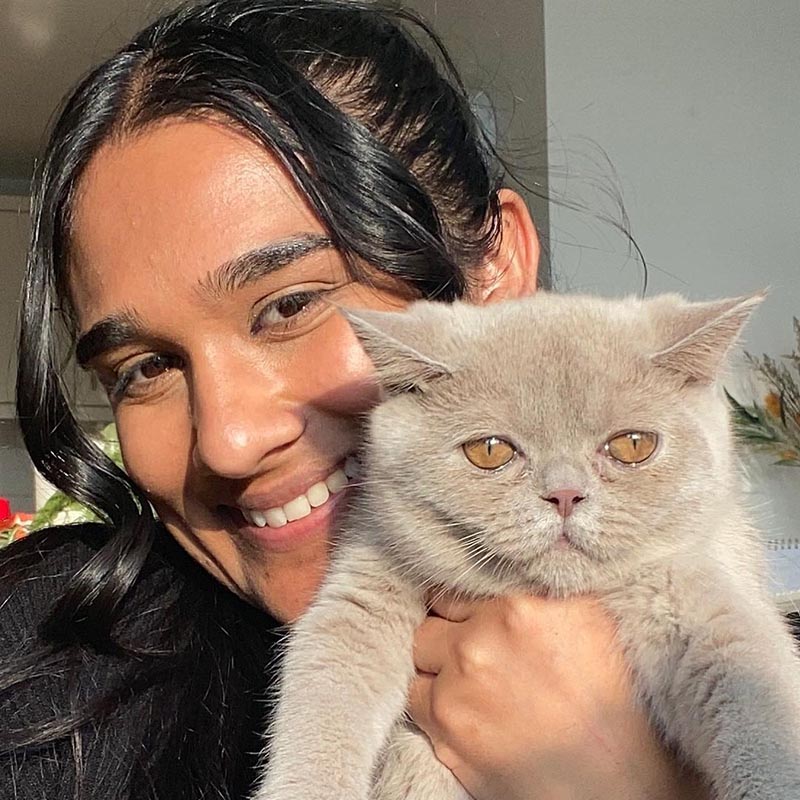
‘The real definition of beauty’
Colourism is deeply rooted in our history, and stems back to the caste system and wealth which was used to determine someone’s value and still plays a role in shaping society’s beauty standard.
Growing up in a South Asian household, there has always been this stereotype and stigma, especially in the older generations, that if your skin is smooth and fair, you are considered more “beautiful.”
This is far from the truth and is fuelled by marketing and advertisements backed by celebrities and influencers, which aim to “fix” our dark circles, lighten our dark complexion and overall, portray our natural South Asian features as something unattractive.
For real change, we need to tackle the core problem. We need to start changing our mindset and our perception of what is beautiful. This doesn’t apply to South Asian women alone, but a mindset for the community.
For so long, we’ve struggled to fit within any definition of beauty, and if we keep hiding our natural selves, then nothing will change. Isn’t it exhausting trying to fit into a box? And why should we? If people tell you, you don’t fit within their definition of beauty then it’s time to create your own. Once we free ourselves from these societal constraints, we can begin building healthier relationships with our insecurities and use them in ways that can help change the way people think and feel. To me, that is powerful.
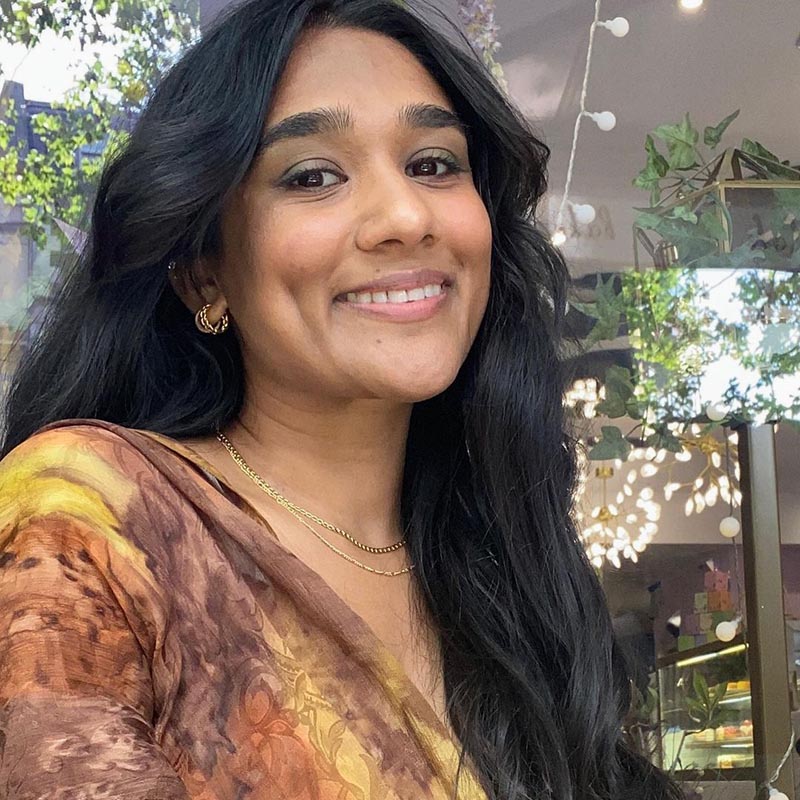
‘Change’
I want my platform to be able to reach more young women in the South Asian community. Young women that feel the need to conform to unrealistic beauty ideals, the ones that wake up early to hide their dark circles with makeup, the ones that don’t feel sexy without shaving their legs, the ones that struggle to wake up in the morning and look at themselves in the mirror, the ones that are constantly being judged at family gatherings, the ones that thanked COVID-19 so they could wear a mask to cover their acne, and the ones that simply don’t have anywhere else to turn. Knowing that my words are slowly redefining beauty by empowering others to go “bare-faced”, drop the filter and finally feel comfortable in their own skin is nothing short of inspiring.
For more content, check out Asiana TV!

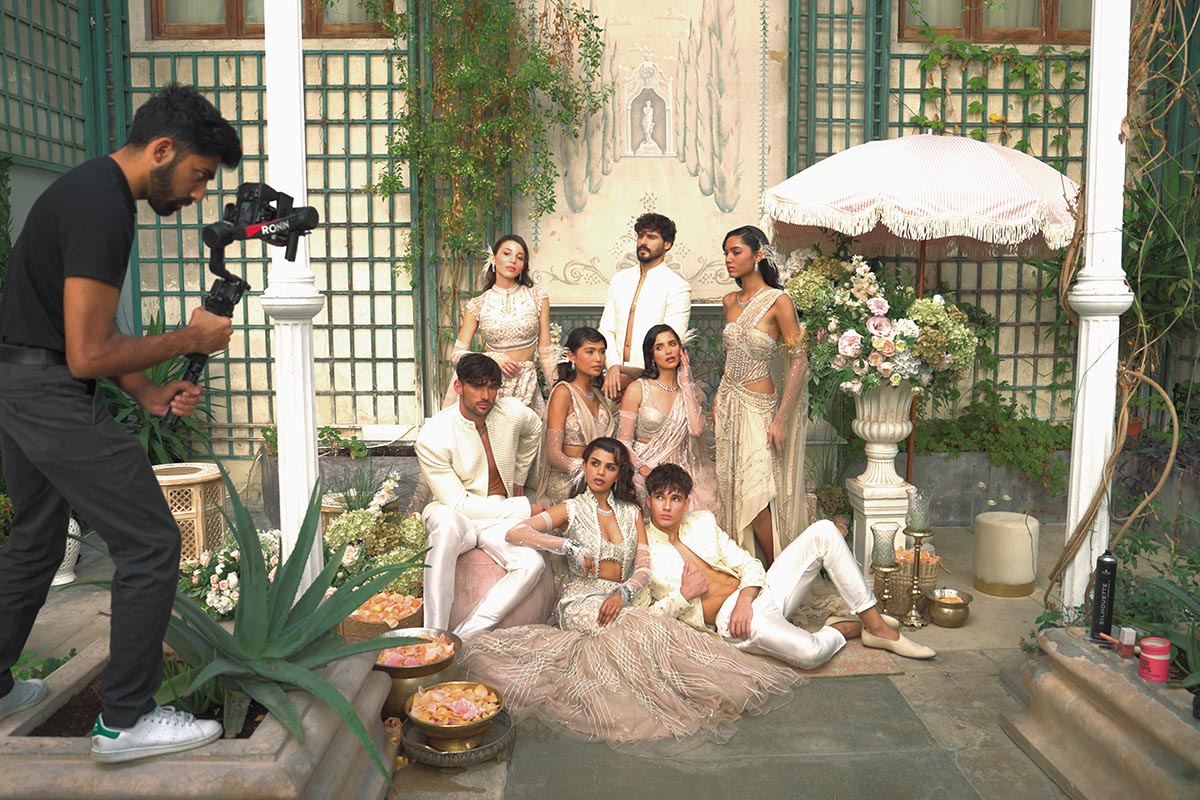
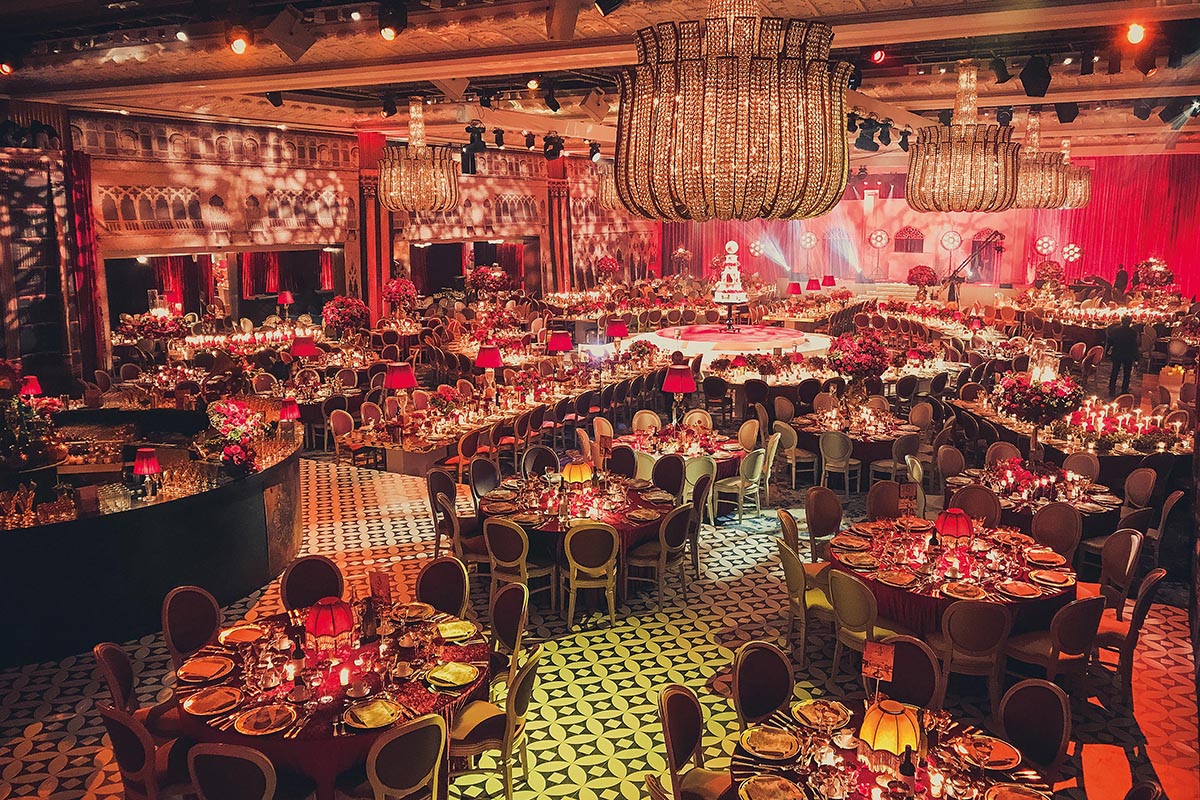
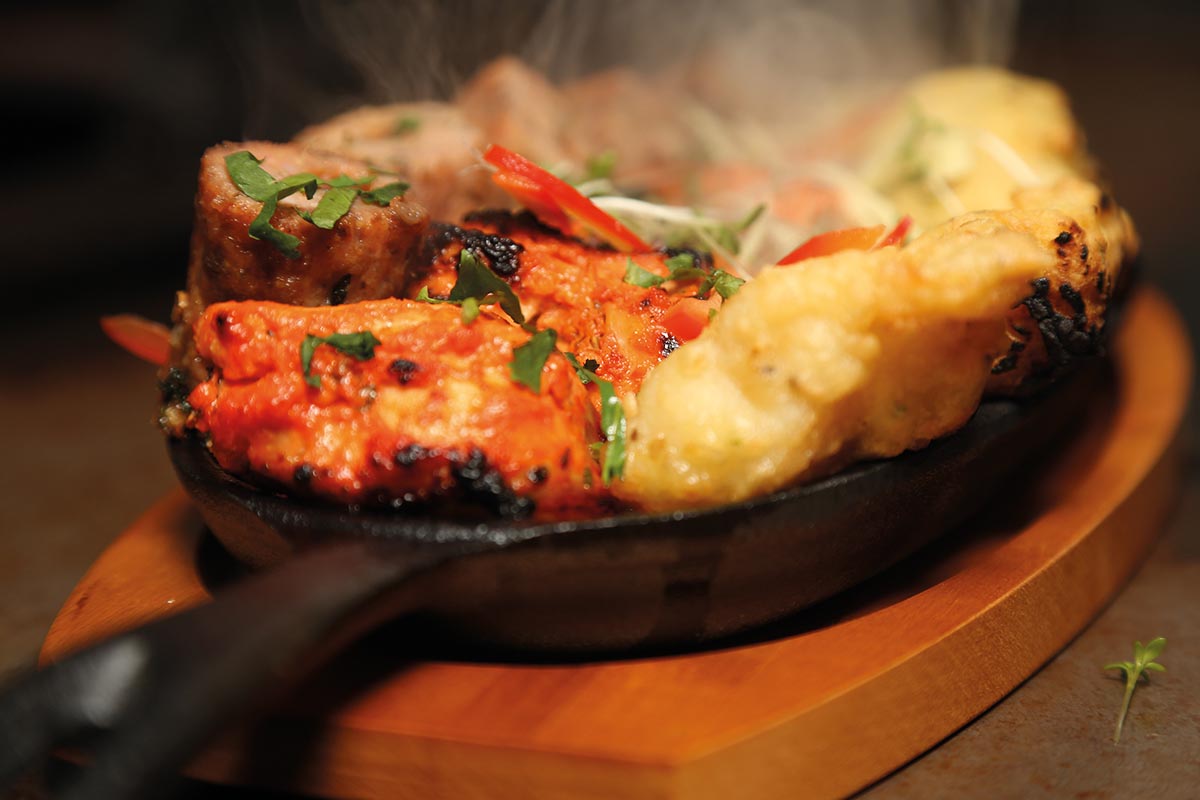

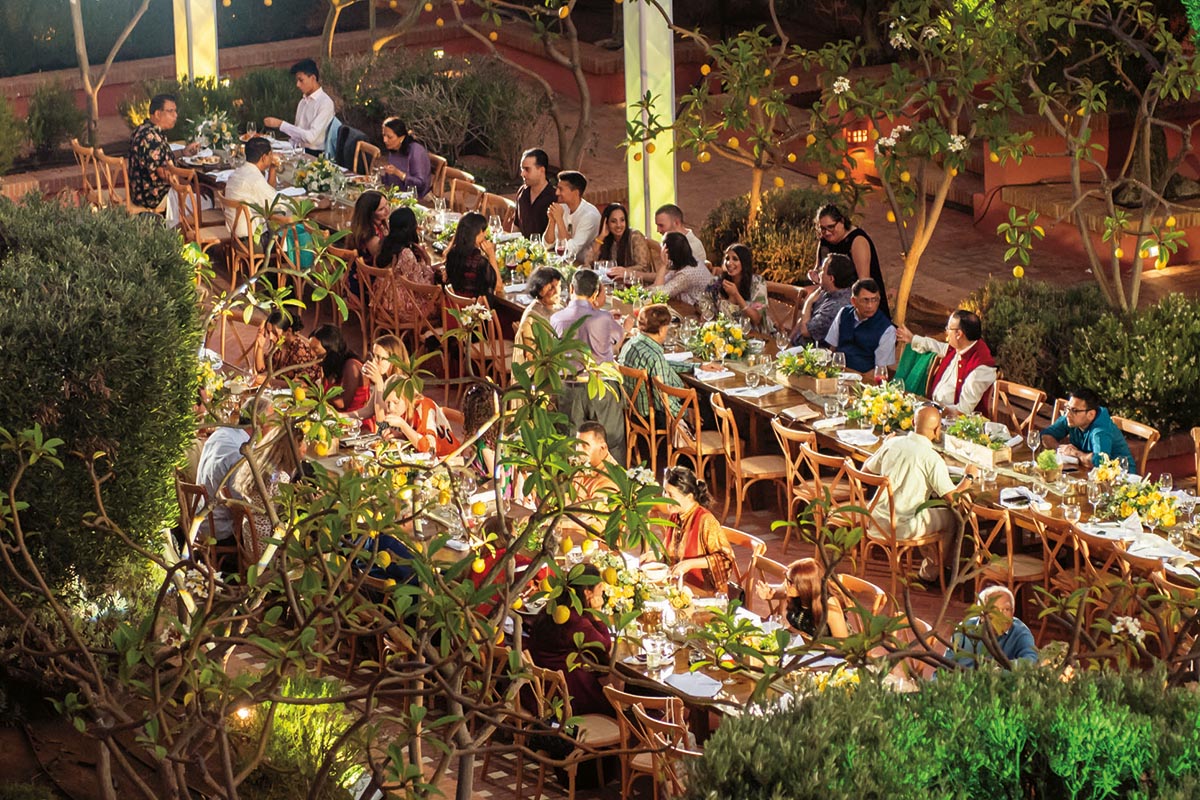
Get Social